Like everyone else I came into this movie quite unimpressed by what I have seen thus far in the promotional material for RoboCop.
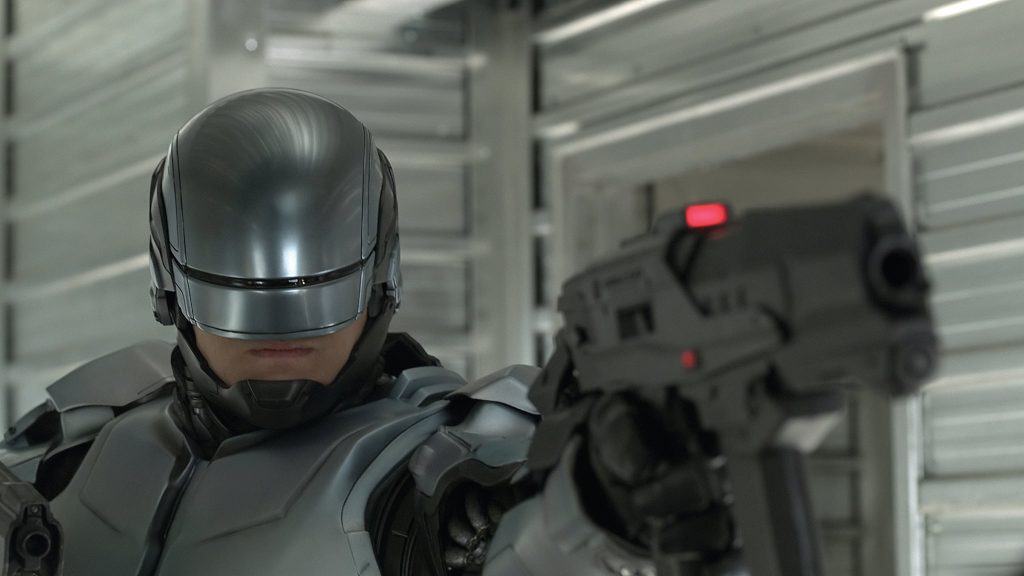
Like everybody else I have critiqued how every change had seemed to be for the poorer than its predecessor. How he just didn’t look the same, or feel the same, or vibe the same as the original. It’s as if they’re trying to be completely separate movies.
But I knew Jose Padilha from his highly regarded Elite Squad 1 and 2. And with each interview came this very intelligent discussion of the concepts Jose was trying to explore. I remained sceptical as somehow a nostalgic part of me still longed for the witty one liners and quotes that we have come to love as the endearing parts of the much revered Peter Weller original which still holds up to viewing even today.
Ultimately it comes down to this. RoboCop 2014 is quite a different animal from its predecessor. It resonates though with the same social commentary as the original did in the way that each film highlighted the cultural concerns of the era from which it was in.
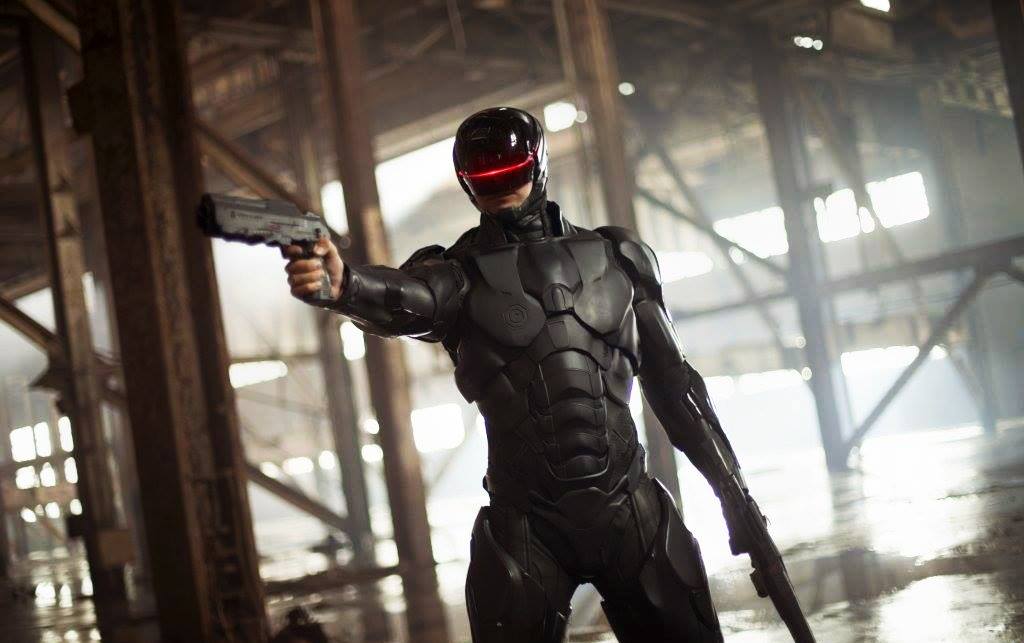
The original RoboCop came from a time where its biting social satire highlighted the blinding obsession with consumerism and 80’s era ultra violence cranked up to the nth degree. It’s also highlighted the prevalence of game show obsessions and cocaine popularity as highlights of the social zeitgeist of the time.
In that way, RoboCop now has not gone ahead to try to parrot or directly remake the original. It would be folly to do so.
What the new film has done instead is explore themes and issues from the current cultural context of 2014. Our concerns. Our news headlines and not a rehash of commentary based on matters that mattered in 1987. The focus now is on the idea of surveillance and police state empowerment, the moral implications of human, machine integration given we are much closer to that reality now than we were in 1987. And the use of black and red as tactical design decisions rather than silver alloy and blue steel.
See I make joke. I make a funny.
The role of politics and public opinion is much heavier in film, and the portrayal of OCP here is more of a company that thrives because of public opinion, rather than in spite of it.
In many ways this movie is a lot more earnest. RoboCop takes its time to explore very complex moral and ethical themes that were never ever not touched on in the original. It’s the pulling of these many interesting threads that leads us on a rather intelligent ride in the first couple of acts.
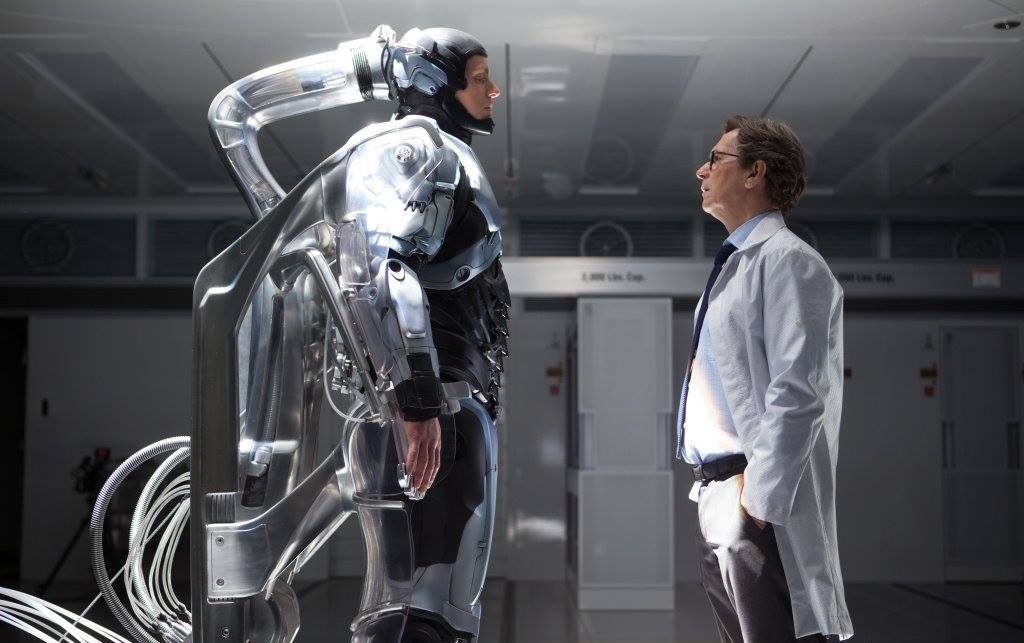
The story of Alex Murphy here is a story about choices and decisions on all levels. Why does the company do what it does? Why does Alex Murphy and his wife choose what they do? Why does the medical and scientific team in charge of RoboCop’s development make the decisions they do? And interesting topics like what of the company’s choice feeds directly into Alex’s removal of options of choice?
The film here actually splits into two parts. The first half is a moral and ethical exploration into the threads that tie into what would entail such a situation happening. Would a wife choose to have a husband die or have him subject to mechanical integration in order to give him the chance of survival? Would a husband and father choose to die if given a choice to stay around albeit in a much different capacity?
A through line seems to follow Jose Padilha’s films so far. He likes to explore the threads of empowerment surrounding the police state. It was the case in the Elite Squad movies and it certainly is the case here. Never a sermon, Jose likes to put a question in your lap and let you percolate on it.
In that way, RoboCop the movie here does a lot to take most of the pantomime out of the villainy. The doctors and corporate executives all make decisions driven around self interest versus ethical implications. The Omnicorp here is nowhere near the vile, Wall Street entity it was in the original, but it does bring a more subtle kind of insidiousness of its very own.
The changes in the narrative of this film actually help to frame this RoboCop into something of its very own. It can’t be stressed enough how different both movies are.
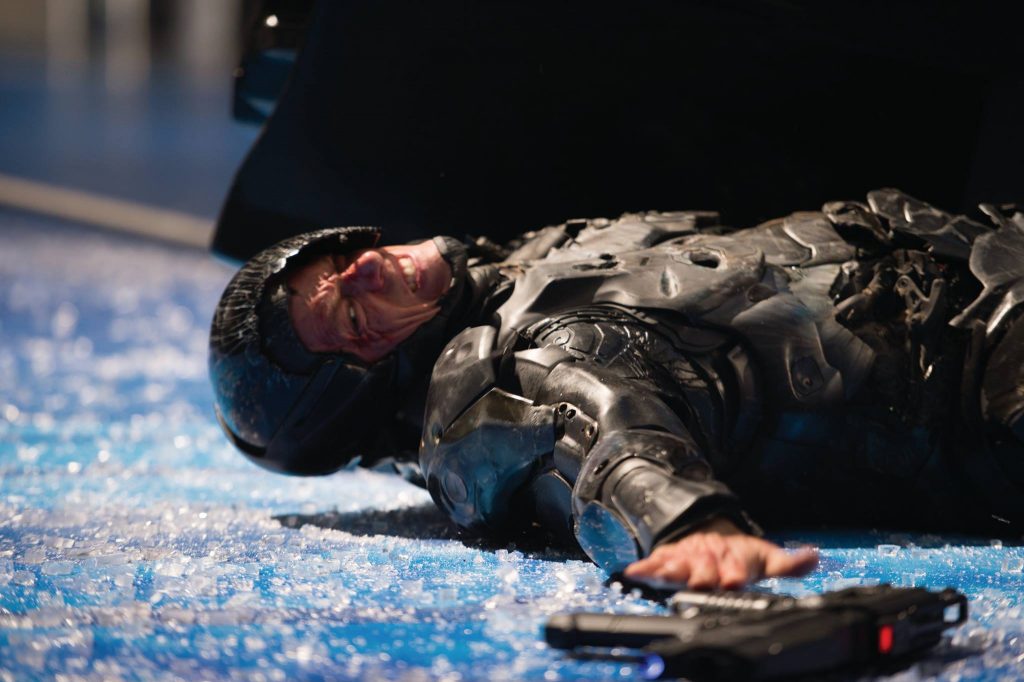
The satire here lies squarely in the portrayal of right wing Republican news centres like Fox News and Bill O’Reilly type personas. Samuel Jackson milks this role with much gusto, highlighting the same way how news agencies of the type are so embedded in pushing their own agenda and pervasiveness on changing social opinion.
The second half of this film (and this review) asks this.. “All well and good the film poses interesting social and political questions blah blah blah. Is it any fun? Does RoboCop square off against ED-209 again? Does he stab people with that stabby stab stab thing he has in his f-you finger knuckle?”
Yes. Yes. And no.
When the movie switches gears to become the action feature more along the lines of what we expect it to, it does so really well, the situations are fresh and never re-threads of set pieces from the original.
New RoboCop is fast. Is tactical. And has the interwebs. And probably has video access to you doing naughty when you thought nobody was watching. And is judging you. Aren’t you ashamed now?
All that seemed clunky and ill designed in pre-production really change when presented in the film. Ultimately most of the RoboCop changes make sense and presents that way when viewed in the film.
And when the film switches gears to the third act, I distinctly remember getting a strong Batman Begins vibe inside myself where I went, “Oh my. I think I really like this film.”
Yes, we are not going to talk about the hand. We all know the issue with the hand. Shut up about the hand already.
The acting in RoboCop is spectacular across the board. Samuel Jackson, Michael Keaton, Gary Oldman, Abbie Cornish all bring their A-games. Oldman is a standout channelling his best Jim Gordon as scientist impersonation.
And Joel Kinnaman starts off very blah but gets exponentially better the less of him we see. His Alex Murphy has a larger emotive range, and brings a greater human sensitivity than his Peter Weller counterpart. He’s a mediocre whole body actor, but I’d put him up against anybody if it came to a “act within a foot square box around your face” race.
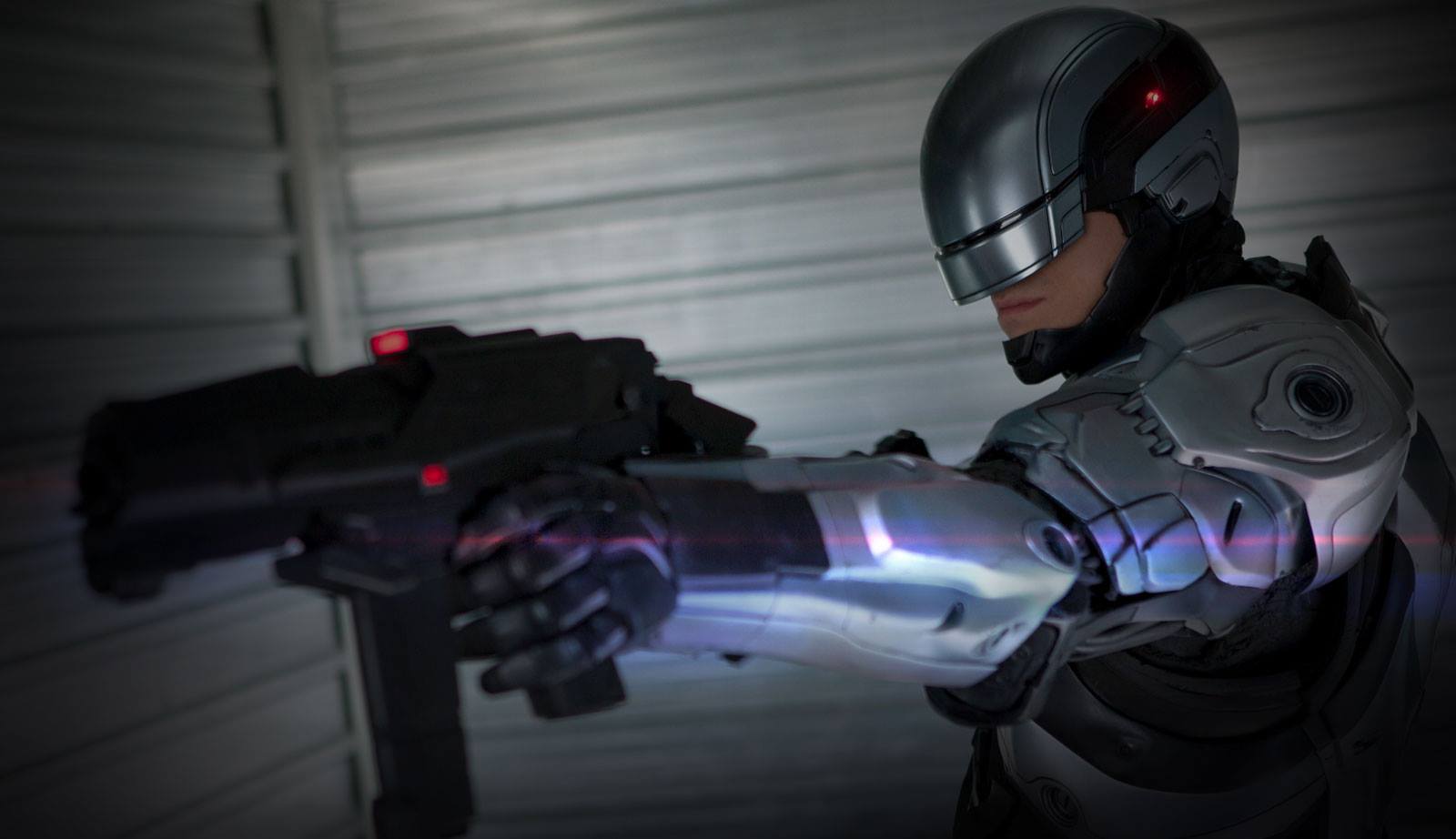
Ultimately this film is a lot more intimate in scope than the original with all its spectacular bombast and overblown hyper violence. In many ways, both movies can be compared very aptly to how the RoboCop suits are. The original is clunky, heavy and packs a big wallop. The newer version is sleeker, more streamlined but faster, sharper and more to the point.
Points to both for giving you something to ponder in the midst of all the whiz, bang and boom. And nostalgia being a factor, I would say the original might tip the new film by just a shade in a race.
If you’re asking why there are so many race allegories, new RoboCop has a motorbike. And I kinda liked the bike. It was like Streethawk.
Super bonus geek points for anyone getting the Streethawk reference.
But there is no doubt the new film will, in time stand on its own as just a fantastic flick of its own accord. It has a big shadow to step out from. And I think it takes the right direction to do so. It’s not a reboot. It’s not a re-thread. It ain’t even the same sport. Comparing the films would be like comparing an apple with a USB charger.
The proof is whether I want to see more about this new more emotional, nuanced Alex Murphy.
And damn it, I do.
Hold the flying, please.
GEEK REVIEW SCORE
Summary
I think we should lose the arm, what do you think, Johnson?
Overall
7.8/10-
Story - 7/10
7/10
-
Direction - 8/10
8/10
-
Characterisation - 8/10
8/10
-
Geek Satisfaction - 8/10
8/10
User Review
( votes)Mao is a tired remnant of the nineties slacker scene. Too intelligent for the grind, too lazy for real work and too romantic to give in to mediocrity, he pines after an old flame across the sea, while sharing his opinion on the counterweight continent with anyone who will listen. A straight man, he is ultimately doomed.












